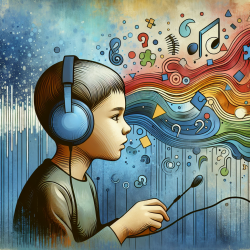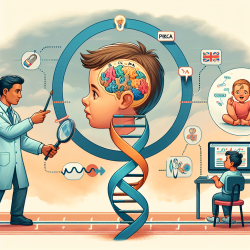As practitioners dedicated to improving the lives of children, it's crucial to leverage data-driven insights to inform our interventions. A recent pilot study titled Impact of auditory training on the listening skills of children with auditory processing disorder in noisy situations offers compelling evidence on the benefits of auditory training for children with auditory processing disorder (APD). This blog explores the study's findings and provides actionable steps for practitioners to enhance their therapeutic approaches.
The Study at a Glance
The study involved ten children diagnosed with APD. Five of these children participated in an auditory training program, while the other five did not receive any training. The training sessions consisted of presenting verbal stimuli combined with background noise at comfortable levels. The children's listening skills were assessed using a sentence identification test in noise and late latency auditory evoked potentials.
Key Findings
Here are some significant outcomes from the study:
- Children in the training group maintained a high percentage of correct responses despite increasingly unfavorable signal-to-noise ratios.
- Electrophysiological measurements showed a decrease in P1 latency and an increase in N2 amplitude, indicating neurophysiological changes post-training.
- Both groups showed improved performance in sentence identification tests after nine weeks, although the improvement was not sustained over time for the training group.
Implications for Practitioners
The study suggests that auditory training can help children with APD develop greater tolerance for noise and improve their listening skills in noisy environments. Here are some practical steps for practitioners:
- Incorporate Auditory Training: Design sessions that include listening to verbal stimuli in noisy conditions. Gradually increase the difficulty by making the signal-to-noise ratio less favorable.
- Monitor Progress: Use both behavioral tests and electrophysiological measurements to track changes and adjust the training program as needed.
- Engage Parents and Teachers: Collect feedback through questionnaires to understand the child's listening behaviors and daily habits before, during, and after the training program.
Encouraging Further Research
While the study provides promising results, it also highlights the need for further research to confirm the long-term benefits of auditory training. Practitioners are encouraged to participate in or initiate studies that explore various aspects of auditory training, including its impact on different age groups and types of APD.
By integrating these insights into your practice, you can make a significant difference in the lives of children with APD. For a deeper dive into the study, read the original research paper.










